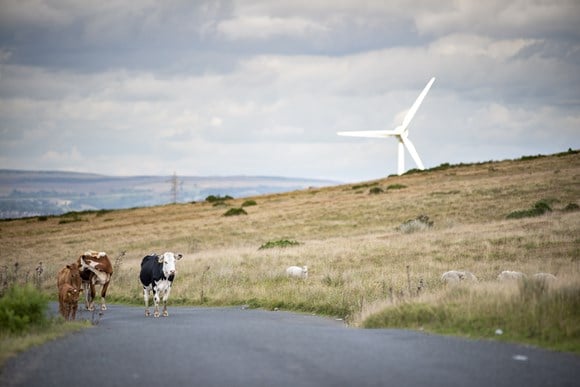A new collaboration between RenewableUK, CPRE and Aldersgate Group will examine the planning system and identify where changes are needed to facilitate net zero.
The organisations will “investigate how the policy landscape can enable the decarbonisation of our energy system whilst protecting landscapes, nature and communities’ right to input”.
The planning system has come under scrutiny in recent years, partially due to its role in preventing the development of onshore wind turbines across England. This is why the not-for-profit organisation Good Law Project launched legal action against the government in late January 2024.
By working with countryside charity CPRE and Aldersgate Group, an alliance of leaders from business, politics and civil society aiming to drive action for a sustainable economy, RenewableUK will be able to identify key areas to bolster decarbonisation prospects whilst also ensuring nature and communities are not negatively impacted by renewable developments.
It is important to note that it is not only renewable generation projects that need to be upscaled; critical infrastructure such as substations and transmission cables also need support. The public’s perception of developing grid infrastructure is relatively positive according to previous research by RenewableUK, which indicated that 64% of the population was in favour.
With the majority of the public in favour of developing new infrastructure, it is now up to the government to ensure the planning system is progressive enough to support developers.
This perspective is supported by RenewableUK, which said the planning system “needs to change if clean energy targets are to be met”, but it is important to create one that “facilitates net zero and protects the environment while allowing space for civil society and communities to have influence”.
James Robottom, head of policy at RenewableUK, said: “If we are to build the renewable energy we need to reach net zero and achieve better economic growth and productivity, we desperately need a planning system that is well-resourced, timely and proportionate.
“We need major upgrades to grid infrastructure that must be delivered at pace to capitalise on the economic and environmental opportunity the transition provides. We need a planning system that encourages good quality applications which make the best, most efficient use of the available resources and land, whilst engaging closely with communities and stakeholders, ensuring that they continue to have meaningful input into decisions throughout the process.”






